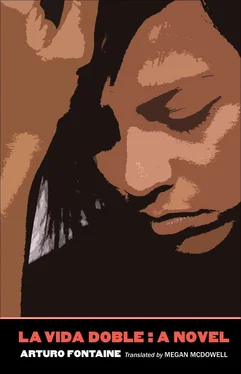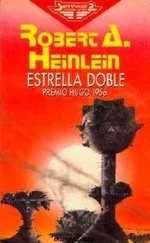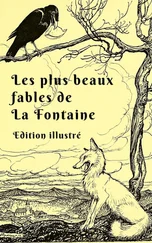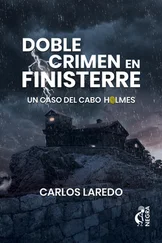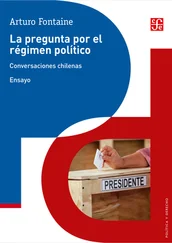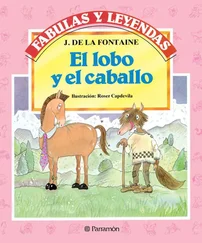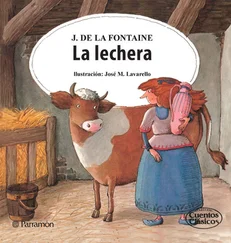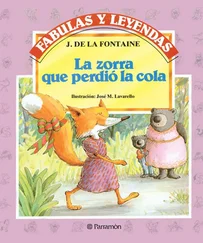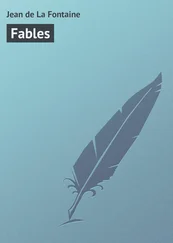And his triumphs began. At first, there were bank robberies to gather funds. This taciturn people subjected to the huinca, the white man, turned overnight into ferocious aucayes, into rebels. Commander Joel and his Mapuche peasants managed in a couple of years to gain control of almost all the forest ranches and livestock farms in that valley. We must plunder the plunderers. The ministers of that shoddy democracy, as he called it, vacillated between negotiation, turning a deaf ear, and reprimanding them. There were beatings and shootings and some injured Mapuches and police. Sometime later, during Salvador Allende’s presidency, the organization grew stronger and more professional. “The criticisms came from the conventional left then, from inside the house of government, from Allende himself, who looked at us sympathetically but did not agree with our methods.”
“They called us ‘ultras,”’ said Canelo, “they called us extremists, they called us ‘pistol heads”’. . Commander Joel’s answer was: armed conflict is inevitable. His contact in Santiago was Bone. And that was the first time I heard his name, Bone, a nickname he’d been given by the Cubans, I found out later. Sometimes, in the Mapuche nguillatune celebrations, frenetic natives swollen with corn chicha liquor and galvanized by the mournful sound of the trutruca horn, the threatening rhythm of the cultrún drum, devoured their bosses’ Hereford bulls. These things happen in a revolution. Commander Joel’s fame grew quickly.
And then, one September day in the year of the Devil, at daybreak, the military came for him. It was never learned what went wrong with their defense, because the soldiers should have been fired down on at the entrance to the canyon in Panguicui, which means “Lion’s Bridge,” and which was closed off by a barricade of enormous, centuries-old coihue tree trunks. There were a lot of those military bastards. Commander Joel hid out in the old storehouses on the Pucatrihue ranch. There was a shootout among the piles of sawn planks, and some twenty peasants died. When he realized he was lost, Joel jumped out a window and threw himself into the Pillanleufú River. The military gave him up for dead. No one knows how he managed to float down in the Pillanleufú’s current, escape through the mountains, reach Santiago, find Bone, and reorganize the armed resistance.
“Ours is a risky bet,” Canelo explained to us, with his particular blend of confidence and serenity that dispelled all doubt and fear. “Allende’s government didn’t have a majority in Parliament to approve the laws that structured his program. Simple arithmetic. A revolution on paper wasn’t possible. Unless,” he said, “unless it was just an initial phase. That’s what his adversaries quickly figured out, with that ruthless realism they have on the right. ‘It would be extremely stupid and absurdly utopian,’ as Vladimir Ilyich Lenin said, ‘to suppose the transition from capitalism to socialism is possible without coercion and without dictatorship.’ A Franciscan illusion is dead,” he said. “Legal revolution — which President Allende put an end to with his heroic death — leaves us in the vanguard.”
“A revolution,” Canelo went on to say, “is paid for with gallons and gallons of young blood. Everything else was and will always be mere deception, cajolery. That’s why we asked for weapons, but when the day came that we needed them, what we had in troops, infrastructure, weapons, and ammunition was clearly insufficient. And what happened, happened, and they got us how they got us. . That was the end of unarmed prophets. The cauldron of the class struggle is turning red hot. We can’t wait for the revolution. We have to provoke it. Víctor Jara: Now is the time / for what tomorrow can be . . Our armed missions are symbols. Our writing of fire will incite the common masses to rise up. Then we will be able to dream of a society like none that has ever existed before, a society of equals that will allow us to leap from the kingdom of necessity to the kingdom of freedom. This is the vision of the brotherhood of Red Ax. When the people see that we’re defying the established order, detonating bombs here and there — and the police look for us but can’t find us — they will join us. Pyotr Tkachev, one of the greatest of the Russian revolutionaries, said: We cannot allow ourselves any delay. It is now, or perhaps very soon, or never .”
I believed him. He brought us the fierce truth of war and broke through the sweet lie of peace and of law. He didn’t give us time to reflect or reason. It was a forceful jolt of hope in its purest state. My destiny was to seek vengeance. The silence of the dead hummed in my ears. Canelo said our armed actions would set off a repressive overreaction and then the people’s angry rebellion. Rafa and I told him yes, we were ready to start as soon as he gave the word.
Two weeks later I went to my first camp in the mountains of Nahuelbuta. Our story or alibi: hikers. We studied the Mini-Manual of the Urban Guerrilla, by the Brazilian Carlos Marighella: “The urban guerrilla’s reason for existence, the basic condition in which he acts and survives, is to shoot.” And: “To prevent his own extinction, the urban guerrilla has to shoot first, and he cannot err in his shot.” But we didn’t have target practice, not yet. I was left with the desire. There were long walks in the hills, self-defense practice, basic notions of surveillance and countersurveillance. The indoctrination sessions were long. Our forces, the instructor repeated, would always be inferior in number and weapons compared to the enemy’s might, but our advantages were surprise and the moral superiority of our fight. At nightfall, we stood and listened to a cassette recording of Commander Joel’s voice. It was a greeting of no more than four minutes. It was the first of many more that we would hear in the future, sunk into reverential silence. One of those rituals that demonstrates inclusion in a community. His voice was slow, solid, well-pitched, midrange, with a rural southern accent. None of that “is he or isn’t he Caribbean” that was common with our leaders. Above all, it was a voice I felt was trustworthy.
Then a couple guitars appeared and there were songs around the bonfire. The most important thing to forge ties: the song and the fire woven into coiled tongues. War has always been like that, atavistic. ¿Qué culpa tiene el tomate?. . What fault has the tomato / peaceful on its vine / and then along comes the son of a bitch / who puts it in a can / and sends it to Caracas! The song was from the Spanish civil war, but we knew the version by Quilapayún. Cuando querrá el Dios del cielo. . When will God in heaven decide / it’s time for the omelet to flip / the omelet to flip / and the poor will eat bread / and the rich will eat shit, shit. My eyes filled with tears. We were singing again. The time of Advent had returned.
And that’s where I met the Gringo, a tall, very thin guy with long, blond hair and a moustache. He had a pleasant tenor voice. Levántate. Stand up / and look at your hands, / reach out to your brother / so you can grow /. . blow like the wind / on the flower in the valley / cleanse like fire / the barrel of my gun. A German from Puerto Varas, he told me. We talked for a while. I don’t remember what about. We laughed. I don’t remember what about. The last night, he was on the other side of the bonfire and his eyes held mine with a gentle insistence. I was expecting something to happen, but in the morning he was gone. I was sorry.
That was my rite of initiation, and how I began the difficult process of self-elaboration that is necessary in order to embrace a moral asceticism. And understand that in those dark years, belonging to that family, that secret and forbidden family that I had chosen, was to be born again, and to be prepared for the sacrifice, anytime, anywhere.
Читать дальше
